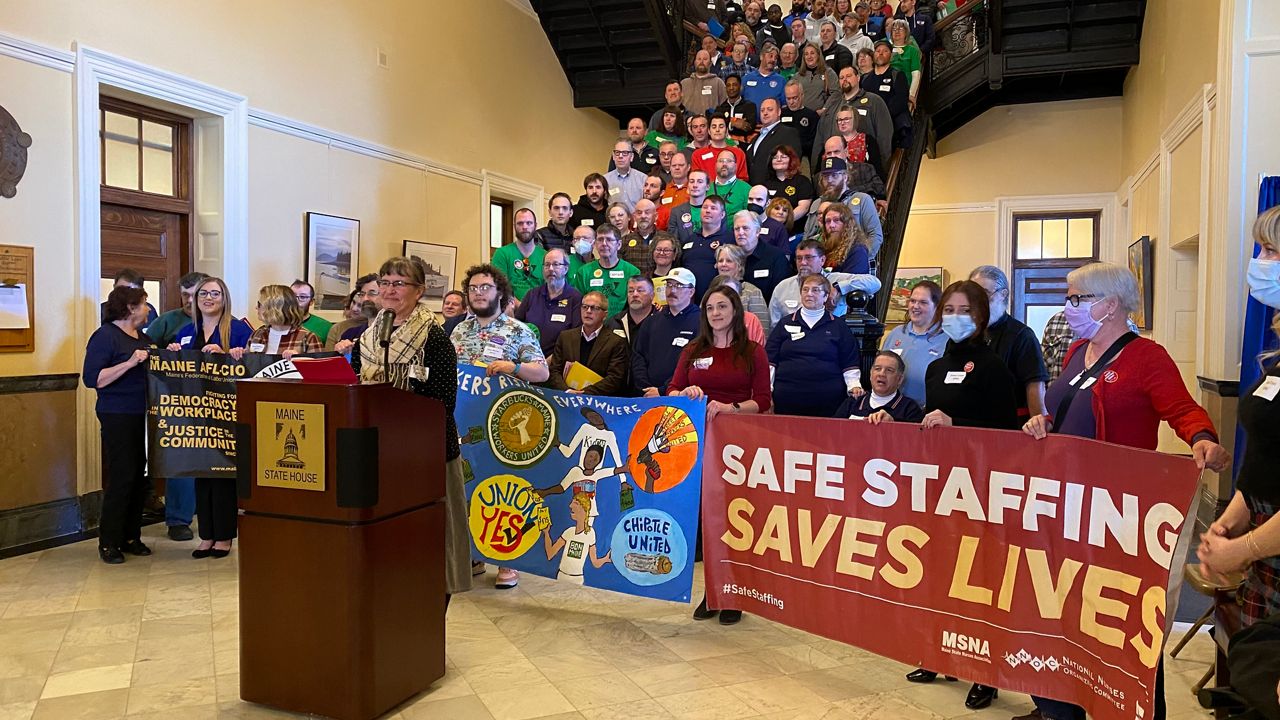Nurses are leaving the “profession in droves” because they are burned out and stressed out, according to one nurse.
“Year after year the hospital industry has ignored the call of nurses to provide safe staffing ratios for nurses and our patients,” Sadie Tirrell said as hundreds of fellow union workers stood behind her at the State House. “Ratios are, without a doubt, the No. 1 thing that affects patient safety.”
Tirrell and nearly 200 other union members, from shipbuilders to teachers to mill workers to electricians, spoke to lawmakers and others Thursday about their priorities for this legislative session.
Tirrell, who works at Maine Medical Center and is a member of the Maine State Nurses Association, urged lawmakers to pass a new law to set nurse-to-patient staffing ratios.
Without limits, studies show patients are more likely to suffer bed sores, falls, injuries and delays in getting medications such as antibiotics and insulin, she said.
Led by the AFL-CIO, the lobby day was the first in-person opportunity to make contact with legislators since the COVID-19 pandemic began in March 2020, said Cynthia Phinney, president of the Maine AFL-CIO.
That’s significant because many unionized workers carried heavy loads during the pandemic that killed nearly 3,000 people in Maine.
“We are here today because we need our legislators to stand up for an economy that works for everyone, not just those at the top,” she said.
Nurses aren’t the only ones carrying heavy caseloads, said Dean Staffieri, president of the Maine Service Employees Association, which represents thousands of state workers.
He said Maine Department of Health and Human Services caseworkers are carrying “impossible caseloads” because of understaffing.
He said state plow truck drivers are working 30-hour shifts and 911 dispatchers are on the job for 16 hours straight. One in six state jobs are currently vacant, representing 2,100 state positions, he said.
Staffieri said those who do stay in state service are underpaid compared to the private sector, with accountants earning 20-33% less, civil engineers making 25% less and correctional officers bringing home 16% less than other workers in similar positions.
To remedy the situation, he’s calling on lawmakers to pass a bill to close those pay gaps and update state job classifications that day back to the 1970s.
“State workers are finding it increasingly difficult to maintain the high level of services we pride ourselves on delivering,” he said. “This is due to widespread understaffing, high turnover and the difficulty the state has been experiencing in recruiting and retaining workers.”
Other union priorities include legislation to prohibit employers from forcing employees to attend anti-union meetings, one to put stronger standards in place for registered apprenticeships and another to limit mandatory overtime for mill workers.




